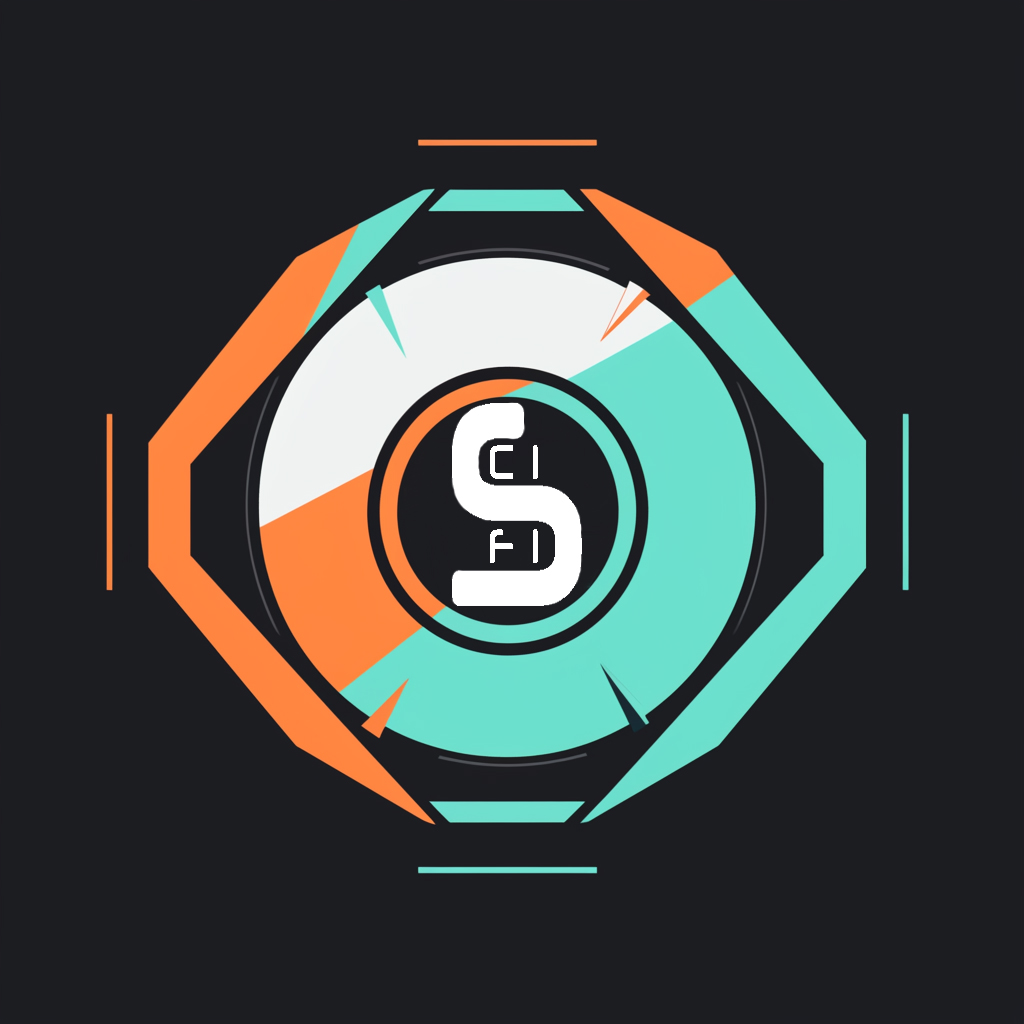

I was going to do an origin character as a solo play-through and a custom character for a group play-through with my mates, but now I might do it the other way around… which means hours in the character creator! Ha.


I was going to do an origin character as a solo play-through and a custom character for a group play-through with my mates, but now I might do it the other way around… which means hours in the character creator! Ha.
Often the question marked as a duplicate isn’t a duplicate, just the person marking it as such didn’t spend the time to properly understand the question and realise how it differs. I also see lots of answers to questions mis-understanding the question or trying to force the person asking down their own particular preference, and get tons of votes whilst doing it.
Don’t get me wrong, some questions are definitely useful - and some go above-and-beyond - but on average the quality isn’t great these days and hasn’t been for a while.


Google’s first quarter 2023 report shows they made massive profits off vast revenue due to advertising.
It is about control though. The thing that caught my eye is that they’re saying that only “approved” browsers will be able to access these WEI sites. So what does that mean for crawlers/scrapers? That the big tech companies on the approval board will be able to lock potential competitors out of accessing the web - new browsers, search engines, etc. but much more importantly… Machine Learning.
Google’s biggest fear right now is that ML systems will completely eliminate most people’s reason to use Google’s search, and therefore their main source of revenue will plummet. And they’re right to be scared, it’s already starting to happen and it’s showing us very quickly just how bad Google’s search results are.
So this seems to me like an attempt to control things from that side. It’s essentially the “big boys” trying to consolidate and firm-up their hold in the industry and not let newcomers rival them, as with ML the barrier to entry has never been lower.


NPCs! Definitely not PCs! Ha.
I have seen people that don’t track spell slots for NPCs and just have them all at-will, which I think is an interesting idea. But I tend to give players non-combat objectives in their encounters, which prolongs them significantly so spell slot usage can become important for balance for NPCs in those cases.


Red Hat saying that argument in-particular shows they’ve pivoted their philosophy significantly, it’s a seemingly subtle change but is huge - presumably due to the IBM acquisition, but maybe due to the pressures in the market right now.
It’s the classic argument against FOSS, which Red Hat themselves have argued against for decades and as an organisation proved that you can build a viable business on the back of FOSS whilst also contributing to it, and that there was indirect value in having others use your work. Only time will tell, but the stage is set for Red Hat to cultivate a different relationship with FOSS and move more into proprietary code.


I just have a series of “pips” that I colour-in when used and erase when claimed back. Super simple, easy to see at-a-glance, and robust so it’s not going to get messed up in my bag. Added bonus is that it works when being DM too and you have several casters to track simultaneously.
Don’t roll your own if you can help it, just use a distribution dedicated for use as a thin client. I was co-incidentally just looking into this last week and came across ThinStation which looks really good. There are other distro’s too, search for “linux thin client”.


How do Linux distro’s deal with this? I feel like however that’s done, I’d like node packages to work in a similar way - “package distro’s”. You could have rolling-release, long-term service w/security patches, an application and verification process for being included in a distro, etc.
It wouldn’t eliminate all problems, of course, but could help with several methods of attack, and also help focus communities and reduce duplication of effort.


I’ve been there. My mum struggled to communicate with me when I was in that period of my life, and so she’d buy me various books that she thought - sometimes through title alone - would get through to me. Almost all didn’t. Almost. One did.
Now, I will recommend the book of course, and more, but that’s not the message I want to give you. We’re all different, we’ve all got into this differently, and we all get out of it differently - what started things rolling for me may well do nothing for you. My message more is that the answer is within you, you just can’t see it - it’s hidden from you through no fault of your own; but with the right nudge, the right spark, and you’ll start to see a way out - so dim at first you scarcely recognise it for what it is, but it’ll nag at you, pique your interest, and slowly, ever-so-slowly, the snowball begins to roll.
Form me, the book was The Glass Bead Game by Hermann Hesse.
I firmly believe that it’s no co-incidence that this book connected with me, it is astonishingly well crafted, the author is a winner of the Nobel Prize in Literature, and several of his books, including The Glass Bead Game, “explores an individual’s search for authenticity, self-knowledge and spirituality.” Reading it is a journey - it takes it’s time to get hold of you, presumably with different elements appealing to different people, then it starts to lead you down a very carefully crafted but almost invisible path to a self-realisation.
A modern author, Matt Haig, wasn’t on my radar when I suffered from depression, but he is a somewhat unusual author in that he writes self-help books and novels. His most famous book The Midnight Library is particularly good, and it was a page-turning read, though I’ve not yet read any of his other titles.
Finally, we’re getting into books that have nothing to do with self-help directly, but I think are just straight-up amazing and recommend them to everyone, but they’re inspirational too:
The Name of the Wind by Patrick Rothfuss is the first book in The Kingkiller Chronicle’s, of which there are currently only two out of the three books at this time - so you will be left hanging, as we all have been for years - but it’s so very definitely worth it.
Ender’s Game by Orson Scott Card is a book that spawned a series referred to as the Ender’s Saga or Enderiverse - it’s brillant on its own, but I highly recommend reading Ender’s Shadow too as it really adds to the first book in an unexpected way.
The author Kazuo Ishiguro is a phenomenal writer and also a winner of the Nobel Prize in Literature. His books are very diverse, but from my experience so far (I’m not finished reading them all) they have something in common to Hermann Hesse’s books; they carefully take hold of you and pull you down a very carefully constructed path that you can barely see, but you feel like you’ve found the way rather than been led there as you must have been! The Remains of the Day is a period drama, not my cup of tea at all normally, but is brilliant and is so well written it made me realise I’d been missing out reading so much pulp sci-fi/fantasy! Another pick is Klara and the Sun, a sci-fi book set from the perspective of an android, which is incredibly well written and manages to shift your perspective on the story so much with so few words.
And so onto my final recommendation, of where to buy cheap books, but I’m going to be sneaky and tell the story of how my search for cheap books helped me overcome my depression.
Charity shops, aka thrift stores, are great for cheap second-hand books - most places will sell them for less than you can find them online - you just might have to do some hunting and regular visits to find them. Now, depending on where in the world you are, they may or may not exist. If they don’t, find out what happens to used books in your country and hunt them out there… it could be church fund-raisers, libraries, etc. But the act of actually browsing all the books and hunting for something new to read is a great activity in and of itself, if you set the goal that you’ll come back with something new no matter what!
But it was while looking at used books in a local charity shop that I realised they were looking for volunteers. So I started volunteering. At first I just stayed in the back listing books for sale online. Then I was convinced to help someone on the till, then asked to look after the till, then the shop, then eventually a paid position came up and I applied for it and got it.
I didn’t know it then, but that act of volunteering truly set me on my path to wellness. Initially I thought it was because of the objective good I was doing in the world, which would make sense - but looking back it wasn’t that at all. It was a more immediate sense of purpose, of socialising, of talking to people and listening to their problems, of getting social cues wildly wrong and learning, and so on. I was in full control of the rate of social interaction, but they always pushed me that touch more - with encouragement, kindness, and support.
Then one day I realised something strange - I was doing small-talk without thinking. It was almost terrifying, thinking back that I’ve literally just said something I’d not explicitly thought. But then it dawned on me… for the first time in over 20 years, I’d just been myself for a fleeting moment - free from worry and free from over-thinking; no conscious thought process martialling my thoughts and speech. It was in that realisation I knew for sure I’d eventually be OK. It took a long time, many years, and there were some bumps - but my rise to good health was inexorable.
Then the crazy part comes… dealing with emotions again! It had been so long since I last properly felt them, outside of expressing all emotions through negative emotions (i.e. I love my brother so much I would do X if someone did something to him"). I’d say I was actually manic for a while, having really high highs more powerful than the best drugs I’ve ever taken, and really low lows where I thought I was back at the start again. But having since seen my young nephews grow up, I realise now it was just learning how to deal with emotions again. It’s a wild ride, but one to be excited about and look forward to, not fear.
Another element that I really struggled with and slowed my progress was “blame”. Who’s fault was it I was like this? Mine? My parents? This event? That experience? It tore me up for a long time, there’s one thing worse than blaming yourself, and that’s blaming those you love. But over the years I came to see that it was a perfect storm, multiple overlapping waves that in isolation would have been tough but fine, but altogether at just the wrong times, sunk the ship. It was nobody’s fault that all these waves came at just the wrong times, that was chance.
So my advice is to read some of these great books and those others suggest, get involved with your community - there’s so many great causes desperate for your help, and set yourself on the path to find that first glimpse of the dim spark that will inexorably lead to your good health. You might not find it in days, weeks, or even months - but if you keep looking, even after a long break, you will eventually find it.
Good luck!
EDIT: Just to say, the Ender’s Game audiobook is amazing - tons of 80’s sci-fi sound effects!
I personally found Fedora to be rock solid, and along with Ubuntu provided the best hardware support out of the box on all my computers - though it’s been a couple of years since I used it. I did end up on Ubuntu non-LTS in the end as I now run Ubuntu LTS on my servers and find having the same systems to be beneficial (from a knowledge perspective).


If I’m okay with the software (not just trying it out) am I missing out by not using dockers?
No, I think in your use case you’re good. A lot of the key features of containers, such as immutability, reproduceability, scaling, portability, etc. don’t really apply to your use case.
If you reach a point where you find you want a stand-alone linux server, or an auto-reconfiguring reverse proxy to map domains to your services, or something like that - then it starts to have some additional benefit and I’d recommend it.
In fact, using native builds of this software on Windows is probably much more performant.


Containers can be based on operating systems that are different to your computer.
Containers utilise the host’s kernel - which is why there needs to be some hoops to run Linux container on Windows (VM/WSL).
That’s one of the most key differences between VMs and containers. VMs virtualise all the hardware, so you can have a totally different guest and host operating systems; whereas because a container is using the host kernel, it must use the same kind of operating system and accesses the host’s hardware through the kernel.
The big advantage of that approach, over VMs, is that containers are much more lightweight and performant because they don’t have a virtual kernel/hardware/etc. I find its best to think of them as a process wrapper, kind of like chroot for a specific application - you’re just giving the application you’re running a box to run in - but the host OS is still doing the heavy lifting.


I’ve always loved the fighters (Starfury?) from Babylon 5:

I used to spend a lot of time modelling them in 3D software, just because! I love the aesthetic, how they have a hint of modern military (the cockpit is Apache helicopter-like), the way they’re held then launched almost like missiles, and how agile their design inherently is. Plus, the design obviously has some nods to the ship in The Last Starfighter and of course the X-Wing from Star Wars - both of which are cool ships.
In the game Elite Dangerous, there’s a ship called a Vulture that has similar elements (cockpit, size-ish, agility) and in VR is the closest I’ve come to feeling like I’m flying one!
As always, it depends! I’m a big fan of “the right tool for the job” and I work in many languages/platforms as the need arises.
But for my “default” where I’m building up the largest codebase, I’ve gone for the following:
I was using file merging, but one issue I found was that arrays don’t get merged - and since switching to use Traefik (which is great) there are a lot of arrays in the config! And I’ve since started using labels for my own tooling too.
I was recently helping someone working on a mini-project to do a bit of parsing of docker compose files, when I discovered that the docker compose spec is published as JSON Schema here.
I converted that into TypeScript types using JSON Schema to TypeScript. So I can create docker compose config in code and then just export it as yaml - I have a build/deploy script that does this at the end.
But now the great thing is that I can export/import that config, share it between projects, extend configs, mix-in, and so on. I’ve just started doing it and it’s been really nice so far, when I get a chance and it’s stabilised a bit I’m going to tidy it up and share it. But there’s not much I’ve added beyond the above at the moment (just some bits to mix-in arrays, which was what set me off on this whole thing!)
I hear they have improved performance now though
It’s still not great. Better, but still slow enough to make you question whether you’ve actually launched the app or not.


None. I like to be able to quickly see a live view of every application, and in Gnome the way to do that is have everything in one workspace and press Super.
I did start with it and use it on a laptop, honestly I think that’s where it shines the most - but I guess the more windows you open the less useful it becomes. I think if there was a way to do the expose-like “view all things at once” (Super key) that worked across all workspaces, I’d be all over them. But as there’s no easy way to live view everything on all workspaces, I just don’t use them.
Definitely give Ruthless a go, I love it… reminds me of early game ARPG’s on higher difficulties. Positioning really matters, you have to adapt based on what you get. It seems to have been the proving ground for PoE2’s new tempo.